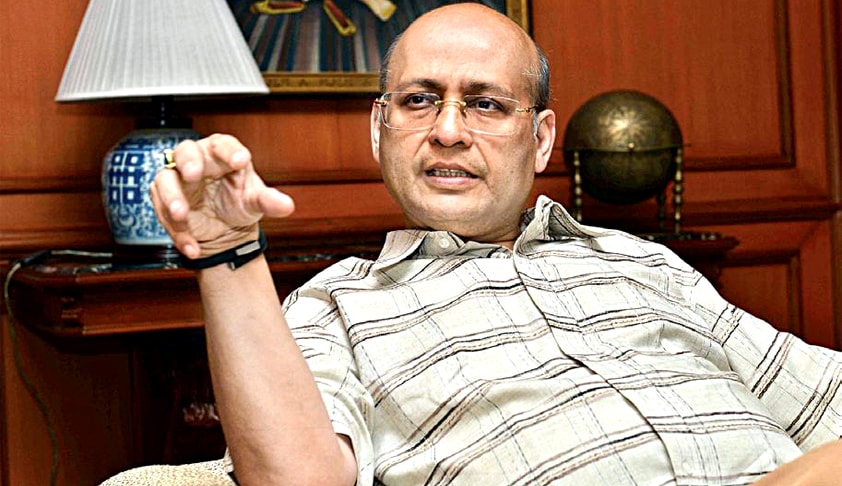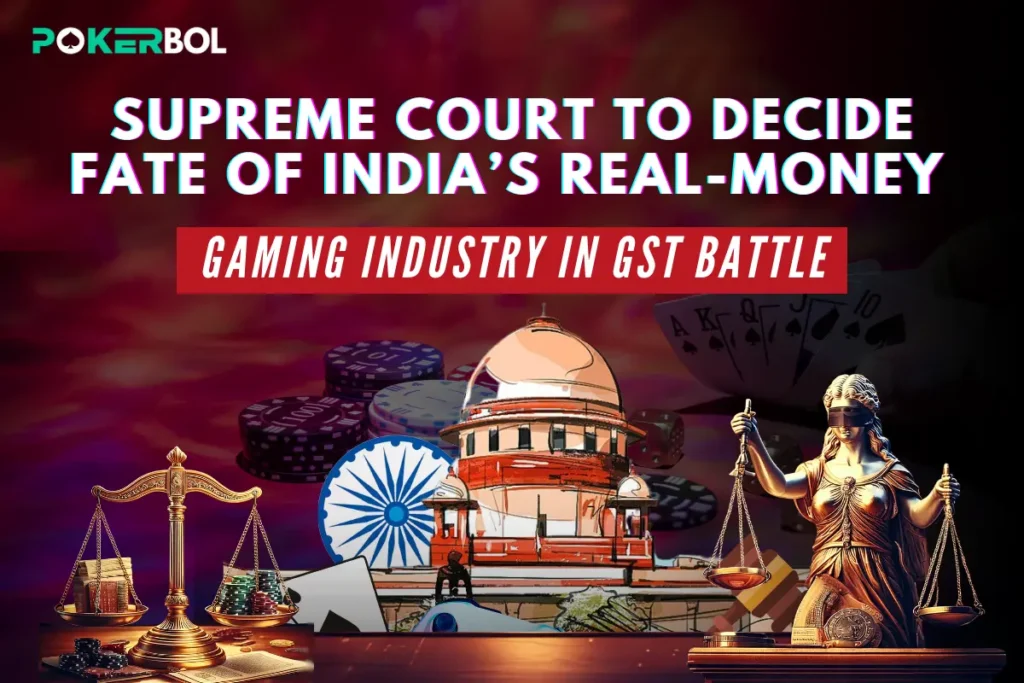The future of India’s real-money gaming (RMG) sector hinges on an upcoming Supreme Court decision that could determine the fate of the industry. The case revolves around a massive retrospective GST demand of ₹1.12 lakh crore, levied by the Directorate General of GST Intelligence (DGGI) on more than 70 gaming companies. These companies, including giants like Games24x7, Dream11, and Gameskraft, face the prospect of crippling financial consequences if the government’s stance prevails.
Government’s Argument: All Stake India’s Real-Money Games Are Gambling
The core issue at hand is the government’s position that online games involving stakes are gambling, regardless of the skill involved. This includes games like poker, rummy, and fantasy sports, which the industry argues are skill-based. In 2023, the GST Council amended tax rules to impose a uniform 28% GST rate on online gaming platforms, casinos, and horse racing. This was an increase from the previous 18% rate, which was applied to the platform’s commission or rake. The new tax, however, applies to the entire face value of player deposits, marking a dramatic rise in tax liability for gaming companies.

Abhishek Manu Singhvi
The government’s argument would mean that even chess, played for money, would be classified as gambling,” said Abhishek Manu Singhvi
More concerning for the industry, the government declared that the new rule would apply retroactively, dating back to July 2017. This means that companies that had paid taxes based on platform fees are now facing backdated tax liabilities on the full deposits from players. The DGGI has already initiated show-cause notices, with the total disputed amount crossing ₹1.12 lakh crore.
The Industry’s Defense: Skill Games Are Not Gambling
In response, the gaming industry is strongly contesting the government’s view. Legal experts representing the sector argue that games like poker and fantasy sports are skill-based, not games of chance, and thus should not be treated as gambling.
The industry is also challenging the retrospective application of the new tax rules, arguing that such an action violates constitutional rights. Specifically, they argue that applying the new tax rules retroactively, after years of legal precedent treating skill games differently, is unconstitutional under Articles 14 (equality before law) and 19(1)(g) (freedom to carry on business).
Supreme Court
The Stakes for Companies: Financial Strain and Layoffs
The impact of this legal uncertainty is already evident. Games24x7, operator of platforms like RummyCircle and My11Circle, recently laid off around 180 employees, citing restructuring in response to financial strain. The company, despite generating ₹1,988 crore in revenue for FY23, has faced substantial losses and is reportedly facing backdated GST demands nearing ₹20,000 crore. This financial pressure is forcing many companies to reconsider their growth strategies and even scale back operations.
What’s at Stake?
The outcome of the Supreme Court case will shape the future of India’s online gaming industry. If the Court sides with the government, it could lead to widespread bankruptcy, stricter regulations, and a crackdown on gaming platforms. Conversely, a ruling in favor of the industry could result in the quashing of backdated tax demands, providing a much-needed boost for the sector’s recovery.
Conclusion: A Defining Moment for India’s Digital Economy
The ongoing legal battle is more than just about taxes; it is a crucial test for how India handles emerging digital sectors. The decision will not only impact the gaming industry but could set the tone for the regulation of innovative sectors across India’s digital economy.
Follow Pokerbol for the latest updates and insights on the real-money gaming industry’s legal battle and developments.
Related Read
Madras High Court Schedules Final Hearing for RMG Regulations Case
Gaming Stocks Surge as Supreme Court Temporarily Stays GST Show Cause Notices
Frequently Asked Questions (FAQs)
- What is the retrospective GST issue in online gaming?
The government is demanding 28% GST on player deposits, retroactively applied since July 2017, a tax that many companies argue is unfair. - Which companies are most affected?
Major platforms like Games24x7, Dream11, and Gameskraft face significant financial liabilities due to the new tax regime. - Why are skill-based games being taxed like gambling?
The government argues that any game played for stakes is gambling, irrespective of whether it involves skill or chance. - What could happen if the Supreme Court rules in favor of the government?
The ruling could lead to bankruptcy for many gaming platforms, stricter regulations, and even criminal charges against executives. - How are gaming companies responding to this issue?
They are challenging the retrospective tax in court, arguing for clear regulations and a fairer tax system that distinguishes skill-based games from gambling.


2 Comments
Pingback: Pocket52 Shuts Down: Warning Bell for Indian Gaming?
Pingback: Madras High Court Backs Online Gaming Ban and Aadhaar KYC in Tamil Nadu